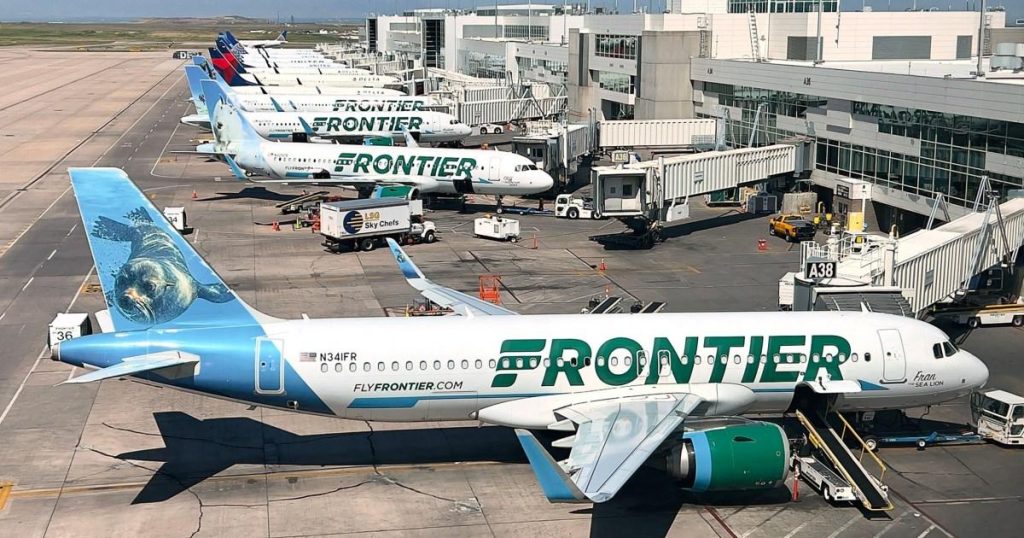Frontier Airlines CEO Barry Biffle has sparked controversy by labeling passengers who attempt to bypass carry-on baggage fees as “shoplifters” and “thieves.” This strong stance underscores the airline’s budget-focused business model, which relies on ancillary revenue streams like baggage fees to maintain low ticket prices. Frontier’s practice of charging for carry-on bags, a service often included in the base fare of other airlines, has drawn criticism, with some labeling these charges as “junk fees.” Biffle defends the practice, arguing that it ensures fairness for passengers who comply with the rules. He further asserts that the potential return of Donald Trump to the White House could lead to deregulation in the airline industry, allowing carriers greater freedom in pricing and service offerings. This deregulation, Biffle suggests, would prioritize crucial aspects like safety over government intervention in pricing and passenger experience. Incentivizing compliance, Frontier has reportedly offered gate agents financial rewards for catching passengers attempting to avoid carry-on fees.
The practice of charging for carry-on luggage isn’t unique to Frontier Airlines. Ryanair, another budget carrier, has also implemented similar policies, requiring passengers to pay for priority boarding if they wish to bring a larger cabin bag onboard. While these budget airlines tighten their baggage policies, advancements in aircraft cabin design offer a potential solution to the perennial issue of limited overhead bin space. Airbus, a leading aircraft manufacturer, has developed larger overhead bins known as Airspace L bins. These innovative bins allow for vertical storage of luggage, significantly increasing capacity and accommodating more bags. Lufthansa is slated to be the first airline to receive these upgraded bins in early 2025, potentially alleviating the stress and inconvenience associated with finding space for carry-on luggage. This development could signal a shift towards a more passenger-friendly approach to carry-on luggage, even as budget airlines continue to implement stricter baggage fee policies.
Frontier Airlines’ approach to baggage fees reflects a broader trend in the airline industry, where carriers increasingly unbundle services traditionally included in the ticket price. This unbundling allows airlines to offer lower base fares, attracting price-sensitive travelers, while generating revenue through add-on fees for services like checked baggage, seat selection, and in-flight meals. While this model can benefit budget-conscious travelers, it also raises concerns about transparency and fairness, particularly when fees are perceived as excessive or hidden. The debate over airline baggage fees highlights the tension between affordability and passenger convenience, raising questions about the appropriate balance between these two competing priorities.
The potential for deregulation under a future Trump administration, as suggested by Biffle, could further exacerbate this tension. Reduced government oversight could empower airlines to implement even more aggressive pricing strategies, potentially leading to increased fees and a further erosion of passenger protections. While proponents of deregulation argue that it fosters competition and innovation, critics express concerns about potential consumer exploitation and a decline in service quality. The future of airline regulation and its impact on baggage fees and other ancillary charges remains a subject of ongoing debate.
The contrasting approaches of budget airlines like Frontier and Ryanair, which emphasize fee-based revenue generation, and legacy carriers investing in passenger-friendly innovations like the Airspace L bins, illustrate the diverse landscape of the airline industry. Budget airlines cater to a specific segment of the market seeking the lowest possible fares, while legacy carriers often prioritize passenger experience and premium services. This market segmentation allows travelers to choose airlines that align with their individual priorities and budgets. However, the increasing prevalence of baggage fees across the industry suggests that even legacy carriers are adopting some aspects of the budget airline model, seeking to maximize revenue streams while offering competitive fares.
The controversy surrounding Frontier Airlines’ baggage fees and Biffle’s comments underscores the complex dynamics at play in the airline industry. The balance between affordability, passenger convenience, and airline profitability remains a delicate one, subject to ongoing debate and influenced by market forces, technological advancements, and regulatory policies. The introduction of innovative solutions like the Airspace L bins offers a glimpse into a potential future where passenger experience and efficient use of cabin space can coexist. However, the continued prevalence of baggage fees, driven by the pursuit of ancillary revenue, suggests that the tension between cost and convenience is likely to persist in the airline industry for the foreseeable future.











